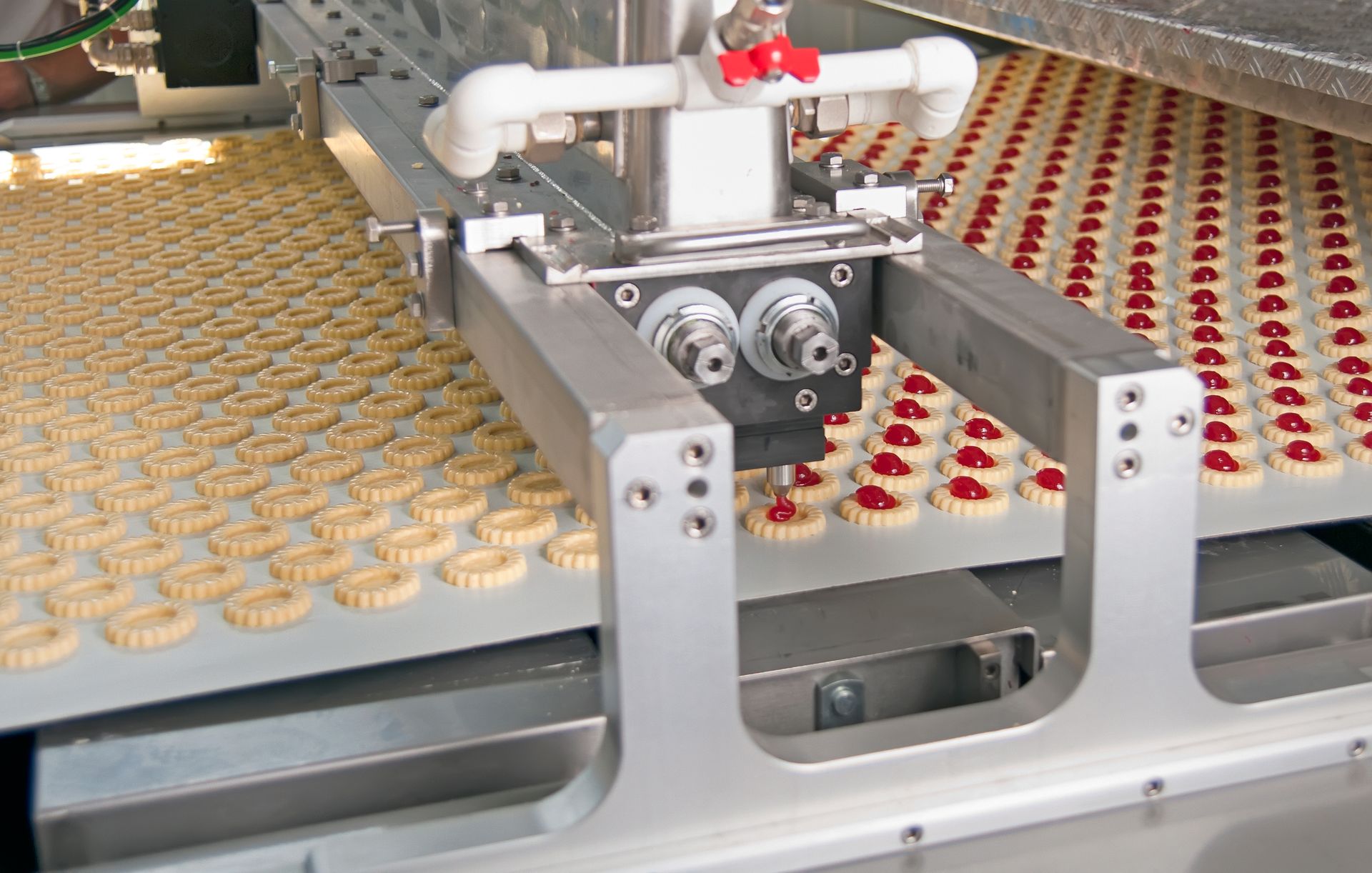The U.S. Bureau of Labor Statistics defines food manufacturing as industries that transform livestock and agricultural products into products for immediate or final consumption. The BLS definition's key element is transforming these authentic foods into other foods using equipment, recipes, and food production techniques such as baking, fermenting, or chemical processes.
Having a robust food safety plan not only sets up successful day/day operations but also builds your company's trust and transparency among your consumers. Inefficiencies in food safety in food manufacturing can have detrimental damage not only financially but ethically too. To name a few: the high cost of a recall, the revamping of current processes/management, the PR crisis, and the most critical impact on human life.
Food Manufacturing and Food Safety
Having a robust food safety plan not only sets up successful day/day operations but also builds your company's trust and transparency among your consumers. Inefficiencies in food safety in food manufacturing can have detrimental damage not only financially but in all aspects of the business. To name a few: the high cost of a recall, the revamping of current processes/management, dealing with the PR crisis, and the most critical, the impact on human life.
According to Food Safety Magazine, the average cost of a recall to a food company is around 410 million of indirect costs, in addition to the damage done to the brand and lost sales. Unfortunately, this doesn't end there; trust is not only lost but hard to build again. Around 21% of consumers say that they would never purchase from a brand that has had a recall.

QIMA Solutions for Food Manufacturing:
Certifications to Internationally Recognized Schemes:
BRCGS Plant-Based Standard
SQF Quality Program
SQF Food Safety Fundamentals
SQF Manufacturing Code
Primus Standard (GMP)
PrimusGFS (GMP)
GLOBALG.A.P. S.L.P
Hazard Analysis and Critical Control Point (HACCP)
Supplier Assurance Audits

Sustainable Supply Chain
Certifications to Internationally Recognized Schemes:
Animal Welfare Certification
Raised Cage Free Certification
Antibiotic Free Certification
Rainforest Alliance
4C
Quality Inspections
QIMA Audits:
Hygiene Audits (GHP)
Good Manufacturing Practice (GMP)
Processing of Animal Products
QIMA offers a range of certifications and audits to help companies ensure food safety, quality, and take on social issues, like animal welfare. The animal processing industry has evolved into a large, corporate, automated industry, which utilizes the entire animal in some manner.
Ambient Products and Shelf-Stable Food Solutions
Ambient stable FOOD products are considered those that do not require a specific temperature or atmospheric conditions if they have the right package. According to the USDA, These non-perishable products include jerky, country hams, canned and bottled foods, rice, pasta, flour, sugar, spices, oils, and foods processed in aseptic or retort packages and other products that do not require refrigeration until after opening. Not all canned goods are shelf-stable. Some canned food, such as some canned ham and seafood, are not safe at room temperature. These will be labeled “Keep Refrigerated.”
Through our solutions, you can meet regulatory and client requisites when it comes to hazard analysis and food safety programs to mitigate any threats.
Plant-Based
In the last couple of years, there has been an increase in demand for plant-based products due to different factors. New SPINS retail sales data released March 3, 2020, shows that grocery sales of plant-based foods that directly replace animal products have grown 29% in the past two years to $5 billion. Refrigerated plant-based meat saw sales increase 63%, and plant-based meat now accounts for 2% of retail packaged meat sales. According to the International Food Information Council (IFIC) Foundation 2020 Food and Health Report, there has been a significant change in consumer eating habits:
Key findings included:
Approximately 70% of consumers consider protein from plant sources healthiest;
28% of consumers are eating more protein from plant sources, 24% are eating more plant-based dairy, and 17% are eating more plant-based meat alternatives; and
More than four in 10 consumers assume that a product described as “plant-based” would be healthier than one that is not.
Need more information?
By contacting QIMA you agree to our privacy policy and terms and conditions.
Why Choose QIMA for Processing of Animal Products Certification and Audits?
Seamless Communication & Service
Responsive technical support at every stage
Transparent certification process & on-time certification delivery
Exceptional service quality validated by 72 NPS score
Cost & Time Optimization
Multi-scheme audits reduce site visits and costs
Streamlined processes minimize operational disruption
Optimized local auditor deployment
Industry Leadership
Preferred certification partner - highest ranked GLOBALG.A.P. and PrimusGFS provider in North America
30+ years pioneering food safety, organic, and sustainable standards
Comprehensive farm-to-fork certification ecosystem
Advanced technology for compliance monitoring
